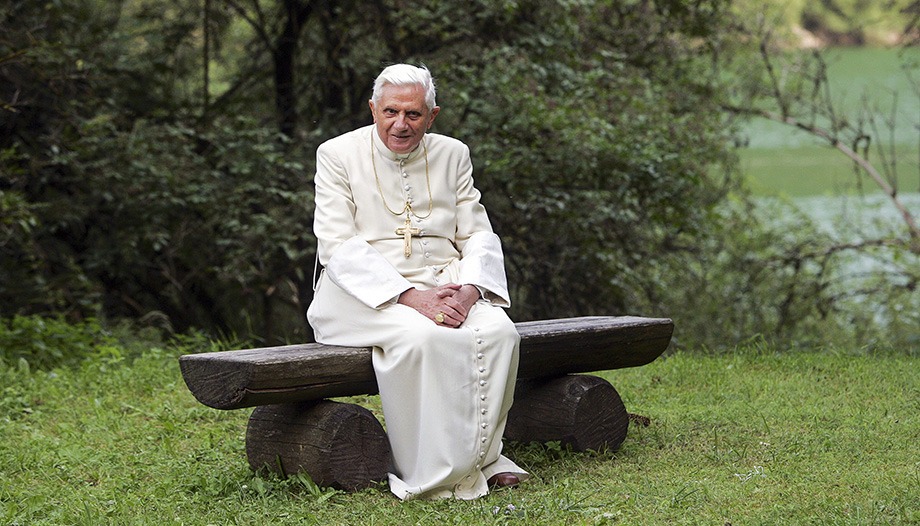




















The Holy See has released the spiritual testament of the Pope Emeritus. In a few simple words, the inner greatness of Benedict XVI is evident. A testament in which the Pope gives thanks for his family, for the faith and for the dedication of many of his friends; he asks forgiveness of those he may have hurt and makes a clear and unequivocal call to look only to Jesus Christ and not to be deceived by false certainties. Stand firm in the faith! is the spiritual legacy of one of the greatest theologians of the Church.
Full text of Benedict XVI's spiritual testament
If at this late hour of my life I look back over the decades I have passed through, I see first of all how many reasons I have to give thanks.
First of all, I thank God himself, the giver of all good, who gave me life and guided me in various moments of confusion; he always lifted me up when I began to slip and always gave me back the light of his countenance.
In retrospect I see and understand that even the dark and tiring stretches of this road were for my salvation and that it was in them that He guided me well.
I thank my parents, who gave me life in a difficult time and who, at the cost of great sacrifices, with their love prepared for me a magnificent home that, like a clear light, illuminates all my days to this day.
My father's lucid faith taught us children to believe, and as a sign he has always stood firm in the midst of all my scientific achievements; my mother's deep devotion and great kindness are a legacy I can never thank her enough.
My sister has assisted me for decades selflessly and with affectionate care; my brother, with the lucidity of his judgments, his vigorous resolution and the serenity of his heart, has always paved the way for me; without this constant preceding and accompanying, I would not have been able to find the right path.
From the bottom of my heart I thank God for the many friends, men and women, that He has always placed at my side; for the collaborators in all the stages of my journey; for the teachers and students He has given me. With gratitude I entrust them all to His goodness.
And I want to thank the Lord for my beautiful homeland in the Bavarian Pre-Alps, in which I have always seen the splendor of the Creator himself shine forth. I thank the people of my homeland because in them I have experienced again and again the beauty of faith. I pray that our land may remain a land of faith and I beg you, dear compatriots: do not let yourselves be turned away from the faith.
And finally, I thank God for all the beauty that I have been able to experience in all the stages of my journey, but especially in Rome and in Italy, which has become my second homeland.
To all those whom I have harmed in any way, I apologize from the bottom of my heart.
What I said before to my compatriots, I say now to all those in the Church who are entrusted to my service: stand firm in the faith! Do not be confused. Often the impression is given that science-the natural sciences, on the one hand, and historical research (especially the exegesis of Sacred Scripture), on the other-is capable of offering irrefutable results in contradiction with the Catholic faith.
I have lived through the transformations of the natural sciences for a long time, and I have been able to see how, on the contrary, the apparent certainties against faith have vanished, proving not to be science, but philosophical interpretations only apparently belonging to science; just as, on the other hand, it is in dialogue with the natural sciences that faith has also learned to better understand the limit of the scope of its claims, and therefore its specificity.
For sixty years now I have been following the path of Theology, in particular of the biblical sciences, and with the succession of different generations I have seen the collapse of theses that seemed immovable, proving to be mere hypotheses: the liberal generation (Harnack, Jülicher, etc.), the existentialist generation (Bultmann, etc.), the Marxist generation.
I have seen and see how out of the tangle of hypotheses the reasonableness of faith has emerged and is emerging again.
Jesus Christ is truly the way, the truth and the life, and the Church, with all her inadequacies, is truly his body.
Finally, I humbly ask: pray for me, that the Lord, in spite of all my sins and inadequacies, may receive me into the eternal dwellings. To all those entrusted to my care, day by day, goes my heartfelt prayer.
(Unofficial translation)












